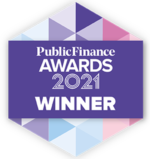Domestic Abuse – we are here to support you
If you are in fear of, or actually suffering from abuse, you can talk to us in confidence. MHA condemns any form of abuse. If you are a victim of domestic violence and abuse, remember you are not alone. You can read our Customer Domestic Abuse Policy here: Domestic-Abuse-Policy.docx
If you are in immediate danger, call 999 and ask for the police. If you can’t speak and are calling on a mobile press 55 to have your call transferred to the police. Find out how to call the police when you can’t speak.
if you want support and guidance, see the list of organisations that can help you, below.
Use the Quick Exit buttons like the one above, to take you to our Cost of Living Support page, if you need to leave this page immediately.
What is Domestic Abuse?
Domestic abuse is when someone in a close relationship with you behaves in a way that causes you physical, mental, or emotional damage. Domestic abuse includes any incident of threatening behaviour. Domestic abuse can be psychological, physical, social, economic or emotional.
Domestic abusers are usually a person’s spouse, partner, ex-spouse, ex-partner or other close family member. Most people affected by domestic abuse are women, but some men are abused by their partners.
Abuse is not just about physical violence, it can involve emotional abuse or coercive control. This is when someone uses a form of oppression to make you feel afraid. They will repeatedly use the same tactic and behave in a way that makes you feel controlled, dependent, isolated or scared.
Domestic abuse could involve:
- Destruction of property
- Isolation from friends, family or other potential sources of support
- Threats to harm or kill you and/or your children
- Control over access to money and how you spend it, personal items, food, transport and telephones
- Watching your movements/stalking
- Repeatedly putting you down, calling you names and telling you that you are worthless
- Threatening to publish information about you or report you to authorities
- Forcing you to take part in criminal activity or child abuse
- Female Genital Mutilation (FGM)
- Human Trafficking
- Forced marriage & honour-based abuse
Domestic abuse can include violence inflicted on or witnessed by children. The adverse effects of living with domestic abuse for children is a child protection issue. The effects can link to poor educational achievement, social exclusion, juvenile crime, substance misuse, mental health problems and homelessness from running away. Domestic abuse is not a ‘one off’ occurrence, it is frequent and persistent.
Domestic abuse is defined under the Domestic Abuse Act 2021
Behaviour of a person (“A”) towards another person (“B”) is domestic abuse if A and B are each aged 16 or over and are personally connected to each other (personally connected is defined under part 1(2) of the Act), and the behaviour is abusive. Behaviour is “abusive” if it consists of any of the following: physical or sexual abuse; violent or threatening behaviour; controlling or coercive behaviour; economic abuse (meaning behaviour that has a substantial adverse effect on B’s ability to acquire, use or maintain money or other property or obtain goods or services) or psychological, emotional or other abuse. It does not matter whether the behaviour consists of a single incident or a course of conduct. A’s behaviour may be behaviour “towards” B despite the fact that it consists of conduct directed at another person (for example, B’s child). Children are also recognised as victims of domestic abuse under part 1(3) of the Act.
I am suffering from domestic abuse. Is there support available?
If you are in fear of, or actually suffering from abuse, you can talk to us in confidence. We work with partner organisations to offer help and support to anyone suffering domestic abuse. You and any witnesses will be offered support throughout the investigation and your case will be dealt with confidentially and sensitively. Where proportionate, we will work with our partners to take action against perpetrators of domestic abuse. MHA condemns any form of abuse.
If you are one of our tenants and you are a victim of abuse we may change or add locks to your home, offer window or door alarms, improve fencing, and add security lights or securing the property while you are away. It is important that you talk to us. We are here to help you.
If you want to speak confidentially to a member of our Community Safety team, please contact us by emailing ASB.Secure@monmouthshirehousing.co.uk or by calling our main line on 0345 6772277. If you wish to speak a female member of staff, please let us know. Alternatively contact the National Domestic Abuse Helpline – 0808 2000 247
Useful helplines and websites
Here are some useful websites which can give further advice and support.
Helplines
The LiveFearFree helpline is a free, confidential 24 hour helpline run by Welsh Women’s Aid. Call 0808 8010 800 or email info@livefearfreehelpline.wales
Childline is a confidential helpline for children and young people experiencing or witnessing abuse run by the NSPCC. The free helpline is 0800 11 11 and open 24/7.
Refuge 24-hour National Domestic Abuse Helpline – https://www.nationaldahelpline.org.uk/
Karma Nirvana free helpline offers support & advice for victims/those at risk of honour-based abuse and forced marriage. Call 0800 5999 247, Mon-Fri 9am-5pm.
Respect – Men’s Advice Line for men experiencing domestic abuse. Call freephone 0808 8010327, Mon-Fri 10am-5pm https://mensadviceline.org.uk/
Additional information and support
UK Government – https://www.gov.uk/guidance/domestic-abuse-how-to-get-help
Safe Spaces Online – https://uksaysnomore.org/
ManKind Initiative, which helps men escape domestic abuse – http://www.mankind.org.uk/
Galop LGBT domestic abuse and violence support – https://galop.org.uk/
Melo Cymru – a free digital resource that offers general mental wellbeing support & advice – Melo Cymru – Mental Health & Wellbeing Resources, Courses & Support
I am suffering from domestic abuse. What are my housing options?
For those at immediate risk
If you find yourself in the situation where you have become homeless or are due to become homeless, you should contact Monmouthshire County Council’s Housing Options Team as soon as possible through any of the Community Hubs or Contact Centre on 01633 644644
Cyfannol Women’s Aid can provide refuge – safe spaces, offering welcoming accommodation for anyone escaping any form of violence against women, domestic abuse and sexual violence: Cyfannol Women’s Aid (Monmouthshire) – Cyfannol Women’s Aid
For non-emergency
You can register on the Housing List via Monmouthshire Homesearch: Monmouthshire Homesearch – Home
I am worried about my behaviour towards a partner/family member, where can I get help?
If you are concerned about your behaviour, there are projects out there that can help you such as:
Respect, where you can talk in confidence about your behaviour and domestic abuse. A friendly Helpline Advisor will listen to you without judgement and give you honest advice: Help For Domestic Violence Perpetrators | Respect Phoneline UK
Phoenix Respect Programme – you can self-refer onto their programme, which is designed to help people who want to stop being abusive in their intimate relationships and to improve their current or future relationships: Domestic Violence Perpetrator Programmes (DVPP) – Phoenix Domestic Abuse Services (phoenixdas.co.uk)



